21 books
-
1. Il ritratto di Dorian Gray
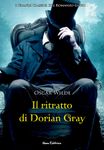
“Il ritratto di Dorian Gray” è considerato una delle ultime opere classiche del romanzo di stampo gotico e horror, nonché uno dei grandi classici moderni della letteratura occidentale. La storia narra di un giovane uomo dal fascino irresistibile che vende la propria anima per la giovinezza e la bellezza eterna. In parallelo con la sua discesa nella lussuria, il suo aspetta resta immacolato e incorrotto, mentre il suo ritratto invecchia e degenera a vista d’occhio, accumulando su di sé il peso degli anni e della corruzione morale. Al suo primo apparire, nel 1890, il racconto della depravazione di Dorian Gray destò scandalo nell’Inghilterra vittoriana e qualche anno dopo fu citato in processo come prova delle tendenze omosessuali di Wilde, causandone l’imprigionamento e il conseguente declino. Sublime e affascinante, “Il ritratto di Dorian Gray” esplora i legami tra bellezza, decadenza e ambiguità e costituisce una tappa obbligata che lascerà un segno indelebile nei lettori di tutte le età. La presente edizione è arricchita da un articolo su Wilde del grande scrittore irlandese James Joyce. Di Oscar Wilde nelle edizioni Nemo Editrice: “Salomé”, versione bilingue italiano/francese, nella traduzione di Carmen Margherita Di Giglio, con illustrazioni di Aubrey Beardsley.
-
3. An ideal husband
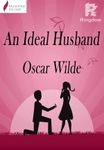
An Ideal Husband is an 1895 stage play by Oscar Wilde that revolves around blackmail and political corruption, and touches on the themes of public and private honour. The action is set in London, in "the present", and takes place over the course of twenty-four hours. Oscar Fingal O"Flahertie Wills Wilde (16 October 1854 – 30 November 1900) was an Irish poet and playwright. After writing in different forms throughout the 1880s, he became one of London"s most popular playwrights in the early 1890s. He is best remembered for his epigrams and plays, his novel The Picture of Dorian Gray, and the circumstances of his criminal conviction for "gross indecency", imprisonment, and early death at age 46.
-
5. The Picture of Dorian Gray
(1891) Oscar, Oscar, Oscar, Forever is a long time... I get bored at cocktail parties!--Submitted by Tequila Mockingbird. ~ Oscar Wilde's perfectly charming and witty manner of expression will enchant you in more ways than one. He is a master storyteller and drifts through the story like a gentle summer breeze through odour filled roses, giving you the feeling that you can literally smell the flower he is describing. The Picture of Dorian Gray is a masterpiece. A beautiful story, based in a beautiful era. The story focuses on an extremely handsome young man, who at the beginning is naively not aware of the power this brings. Through his friend Basil, the artist who is to blame for the exquisite portrait of Dorian, he meets Lord Henry, the fun loving, dangerously influential gentleman who takes a liking to Dorian and makes him a sort of prot* of his. It is Lord Henry that takes Dorian's innocence and teaches him the way of the world, or British society, and sparks the light of vanity and pride in Dorian. This magical story enters into the fragile world of youth and old age, the thirst to maintain the former and the fear of the inevitable latter, accompanied with dreadful emotions of love, shame, hate, fear...I can't imagine why no one has made a movie of it yet. This is one book that will stand on your shelf with pride, and will be the most worn and torn one there. Enjoy the genius of Wilde.--Submitted by Ivana Magdenoska. ~ There is an old film version of this story called "The Portrait of Dorian Grey" which was possibly made in the late 1930's to early 1940's. The actor who played the main character, Dorian Gray, was most exquisite of form and played the character most effectively. Actor George Sands was the Lord who corrupted the young Dorian, and I believe it was for the sheer pleasure of corruption of youth that he undertook that task. This story is more about choices, personal volition, and responsibility. We can look at Dorian and question his making that choice, but the person who set him upon that path bears the greater responsibility for corruption of an innocent person. In the end, Dorian is done-in by his own desire to destroy what he had himself created of his life, and what he had destroyed of the person of his own making. Chilling and undeniably timely as the society we make for ourselves today seeks to destroy itself by corrupting the youth that we deem iconic. --Submitted by Anonymous ~ What would you do if you had a record of every bad deed you did? Would you hide it away where no one would see it? What would you do to hide your secret if someone discovered it? Read this book and ponder these age old questions.--Submitted by Sandra Branum ~
-
6. Il ritratto di Dorian Gray

SOLIDARIETA" DIGITALE : tutto il nostro catalogo in promozione! Dorian Gray è un giovane di straordinaria bellezza. Un giorno viene ritratto da un suo amico pittore, Basil Hallward, in un quadro che ne rappresenta fedelmente le stupende fattezze. Proprio nello studio del pittore, Dorian conosce lord Henry Wotton, uomo cinico e senza scrupoli che diventa ben presto un punto di riferimento nella vita del ragazzo. Dorian inizia così a condurre anch’egli un’esistenza fatta di eccessi e priva di ogni scrupolo morale. Nonostante le azioni malvagie di cui Dorian si rende colpevole, tra le quali l’uccisione dell’amico Basil, e nonostante il trascorrere del tempo, il suo volto non accenna a perdere la bellezza che lo caratterizza, come fosse inattaccabile sia dai segni del tempo che da quelli della depravazione. È piuttosto il suo ritratto a mostrare il peso di tutto questo. Il ritratto di Dorian infatti, divenuto mostruoso, non è che la raffigurazione della sua anima perduta. Questa gli si mostra in tutto il suo orrore e Dorian, non sopportandone il peso, sfregia il ritratto con un pugnale, lo stesso usato per uccidere Basil. All’improvviso quel volto dipinto riacquista l’originaria bellezza, quella che tutti fino a quell’istante avevano ammirato sul volto di Dorian, dove ora appaiono invece i segni della dissolutezza e della sua vita corrotta e degradata.
-
7. The Canterville Ghost
A novella of Parody (1887) An amusing chronicle of the tribulations of the Ghost of Canterville, Chase, when his ancestral halls became the home of the American Minister to the Court of St. James. Amazing book for you Ghost Lovers. Mr. Wilde wrote an awesome novel. When Mr. Otis buys a new place, it's never going to be the same! So friends, hold your breath as you read on!--Submitted by Moksha
-
8. The Importance of Being Earnest
(1895) The Importance of Being Earnest is one of Wilde's most famous plays and still commands the affection of the public through its cinematic adaptations; most recently with Reece Witherspoon and Colin Firth. In Earnest, Wilde uses a mixture of social drama; popular at the time and other popular but less politically engaged forms such as melodrama and farce. The use of gentle parody is probably what protected Wilde from the more biting attacks aimed at his contemporaries such as Henrik Ibsen and Thomas Hardy who commented to similar effect on the values and attitudes of Victorian society. Within the drama Wilde manages to satirise the values that many still believed were the very reason for the great triumphs of Victorian Britain on the world stage. These were the ideas of respectability, self sacrifice, moral rectitude and high mindedness that were closely associated with the Victorian aristocracy. Little by little however Wilde reveals all these to be simply elements of an elaborate mask worn by the ruling elites, behind which each is engaged in precisely the opposite modes of behaviour. In short the principle characters will go to any lengths to avoid their responsibilities and place self interest at the top of their own agendas. Through the literary techniques of dramatic irony parody and reversals Wilde reveals the moral hypocrisy at the heart of the Victorian establishment. Submitted by Julian Singer Lecturer in English Literature at City College Plymouth.
-
9. An Ideal Husband
A dazzling blend of farce and morality, this play explores human frailty and social hypocrisy. Sir Robert Chilton's secret is discovered and exposed. He is accused of having exploited government secrets for his own gain early in his political career. With this revelation from Mrs. Cheveley comes the threat of blackmail and the ruin of Sir Robert's career. Yet in order to be a successful blackmailer, one's own reputation must be beyond reproach.
-
10. Das Bildnis des Dorian Gray
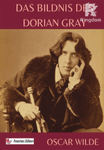
Das Bildnis des Dorian Gray (Originaltitel: The Picture of Dorian Gray) ist der einzige Roman des irischen Schriftstellers Oscar Wilde. Eine erste Fassung erschien 1890 in Lippincott’s Monthly Magazine aus Philadelphia, 1891 wurde bei dem Londoner Verlag Ward, Lock and Co. die heute bekannte, überarbeitete und erweiterte Fassung in Buchform veröffentlicht. Der seinerzeit als anrüchig geltende Roman war auch Gegenstand des Unzuchtprozesses gegen Wilde.Die Hauptfigur, der reiche und schöne Dorian Gray, besitzt ein Porträt, das statt seiner altert und in das sich die Spuren seiner Sünden einschreiben. Während Gray immer maßloser und grausamer wird, bleibt sein Äußeres dennoch jung und makellos schön.Der Roman gilt als Oscar Wildes Prosahauptwerk. Themen sind die Moralität von Sinnlichkeit und Hedonismus im Viktorianismus und die Dekadenz der englischen Oberschicht. Außerdem lassen sich die Handlung und die eingearbeiteten Kunstbemerkungen sowohl als Proklamation wie auch als Kritik des Ästhetizismus lesen, einer literarischen Strömung des Fin de Siècle.Oscar Fingal O’Flahertie Wills Wilde (* 16. Oktober 1854 in Dublin; † 30. November 1900 in Paris) war ein irischer Schriftsteller, der sich nach Schulzeit und Studium in Dublin und Oxford in London niederließ. Als Lyriker, Romanautor, Dramatiker und Kritiker wurde er zu einem der bekanntesten und gleichzeitig umstrittensten Schriftsteller im viktorianischen Großbritannien.Wegen homosexueller „Unzucht“ wurde er 1895 zu zwei Jahren Zuchthaus mit harter Zwangsarbeit verurteilt; sie ruinierten seine Gesundheit. Nach der Entlassung lebte er verarmt in Paris, wo er im Alter von 46 Jahren starb.Übersetzer:Richard Zoozmann
-
12. A Woman of No Importance
A darkly comedic Play in Four Acts (pub.1893) ~ Wilde makes a strong case for women in this intriguing play, which tells the story of a man, a woman and the child they have outside of marriage. Lord Illingworth is a thoughtful man who offers young Gerald a position as his secretary, a position Gerald is only too happy to accept, especially as he is just starting his career and desires a solid foundation for Hester Worsley, the young American he wishes to marry. Things take a turn when Mrs. Arbuthnot, Gerald's mother, meets her son's boss. They immediately recognize each other from this youthful days of indiscretion. Will Gerald learn his father's true identity? What of Lord Illingworth? And how will Mrs. Arbuthnot live with the result? The last line of the play is sure to send any mind reeling with admiration!--Submitted by Marisa B. ~
-
15. The Portrait of Mr. W. H.
(1891) This is a story attempting to uncover the identity of the mysterious dedicatee of William Shakespeare's Sonnets. Another classic Oscar Wilde story about a Shakespearean scholar who discovers a pattern in the works of the Bard. From the pattern, he discovers a hitherto unknown fact and the identity of the mysterious Mr. W.H. The reader is shown the entire chain of logical reasoning. And then what happens? Oscar Wilde happens!--Submitted by Hrishi
-
16. Il ritratto di Dorian Gray
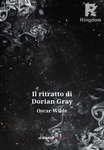
Pochi classici sanno essere attuali e coinvolgenti quanto Il ritratto di Dorian Gray. Il celebre romanzo, opera di Oscar Wilde, narra le vicissitudini di Dorian, dandy e frequentatore dei migliori salotti di Londra, e dell'irrefrenabile culto della bellezza che lo porterà a stringere un patto diabolico... Ritratto della nostra epoca devota al culto dell'immagine, Dorian Gray riesce ad affascinare a distanza di secoli, influenzando generazioni di lettori, il teatro e la cinematografia.
-
17. Le Portrait de Dorian Gray
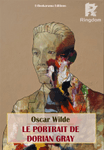
"Le Portrait de Dorian Gray" est l'unique roman d'Oscar Wilde. Il le publie dans sa version définitive en 1891 . Cette œuvre hédoniste lui vaut une très grande notoriété, mais une partie du public anglais, sera choqué par l'immoralité du héros. Les nombreuses polémiques qui s'en suivront ne feront que renforcer le succès de Wilde.Ce roman fantastique est à la fois un manifeste esthétique et un récit moral. Bien qu'Oscar Wilde y développe l'idée d'un art dégagé de toute éthique, le jeune Dorian Gray va faire face à sa conscience morale à travers son portrait qui porte à sa place les traces de sa perversité et la décadence que le temps inflige aux esprits les plus purs.Dorian Gray est un jeune homme d'une très grande beauté. Son ami artiste peintre Basil Hallward est obsédé par cette dernière et en tire toute son inspiration. Sa fascination pour le jeune homme le mène à faire son portrait, qui se révèle être la plus belle œuvre qu'il ait jamais peinte, et qu'il ne souhaite pas exposer. Dorian va faire la connaissance de Lord Henry, dit Harry, un ami de Basil. Conscient de la fascination et de la perversion que ce dernier pourrait avoir pour son idéal de beauté, « cette nature simple et belle », Basil demande à Lord Henry de ne pas tenter de le corrompre. Mais Dorian se laisse séduire par les théories sur la jeunesse et le plaisir de ce nouvel ami...
-
20. Das Bildnis des Dorian Gray

Das Bildnis des Dorian Gray von Oscar Wilde (Originaltitel: The Picture of Dorian Gray) ist der einzige Roman des irischen Schriftstellers Oscar Wilde. Eine erste Fassung erschien 1890 in Lippincott’s Monthly Magazine aus Philadelphia, 1891 wurde bei dem Londoner Verlag Ward, Lock and Co. die heute bekannte, überarbeitete und erweiterte Fassung in Buchform veröffentlicht. Der seinerzeit als anrüchig geltende Roman war auch Gegenstand des Unzuchtprozesses gegen Wilde.Die Hauptfigur, der reiche und schöne Dorian Gray, besitzt ein Porträt, das statt seiner altert und in das sich die Spuren seiner Sünden einschreiben. Während Gray immer maßloser und grausamer wird, bleibt sein Äußeres dennoch jung und makellos schön.Der Roman gilt als Oscar Wildes Prosahauptwerk. Themen sind die Moralität von Sinnlichkeit und Hedonismus im Viktorianismus und die Dekadenz der englischen Oberschicht. Außerdem lassen sich die Handlung und die eingearbeiteten Kunstbemerkungen sowohl als Proklamation wie auch als Kritik des Ästhetizismus lesen, einer literarischen Strömung des Fin de Siècle.


